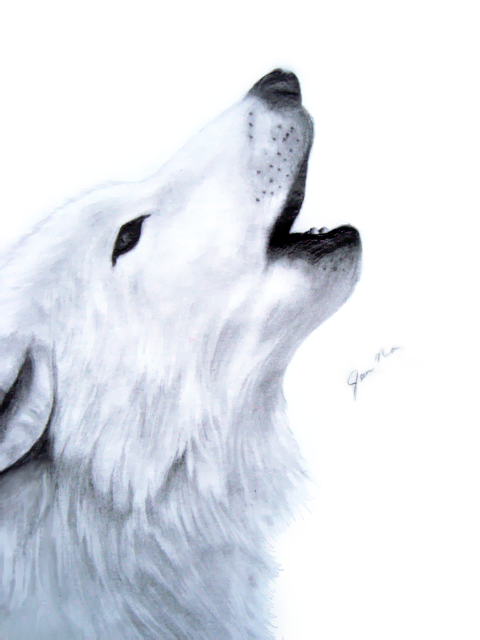
Maybe you’ve heard about the recent aerial gunning down of wolves in the Clearwater Wilderness in Idaho.
Since 2014, the howls of 24 wild creatures have been silenced, with no plans to change course.
The most piercing piece of information to my own wolf-loving heart is that this is occurring at the expense of American taxpayers through Wildlife Services. The irony being that a different branch of the federal government—the U.S. Fish and Wildlife Services—reintroduced 30 breeding pairs of wolves back into the Yellowstone Greater Recovery Area in 1995 under the Endangered Species Act.
The wolves have been doing so well, Idaho wants to eliminate as many as possible, in whatever manner they can.
My heart feels heavy after the violence in this latest event.
My mind reels in confusion over Idaho’s commitment to silencing the wild landscape.
Sometimes, the sadness for all the things I can’t help in this world overwhelms my heart. I could write volumes on the benefits of wolves—in our ecosystems, economically, psychically, spiritually. None of it will soften the hatred of those wanting them dead. It’s not enough to shed light on the darkness of this cruelty—intellectual debate falls silently into the backdrop of an ignorant and stubbornly fearful heart.
These acts are nothing more than species-side against Canis lupus contributing to the violence in our world. It’s an endless war: hatred against hatred. We know where it likely ends.
But this isn’t about the argument or an update on the endless politics of wolves. It’s about how to care for my own wolf-loving broken heart, and remind us all of the Buddhist practice of Tonglen, in case your own heart is broken about this, too.
In Tonglen practice, I bring my own anger to the cushion, or under the shade of a Ponderosa Pine high up in the mountains. There, I can allow it to rest in my corporeal self, allow it to just be. Dense, hard, tight energy. Constricting and choking off any light or love. We all know it, we’ve all felt it. It’s all compost for the spiritual processing heap. It’s the most basic place to begin—dealing with our strong emotions.
Eventually, sitting with the hardness of anger allows it to soften into something else. It shifts—from that tight, jaw-clenching rage and indignity, to just plain sadness and loss. Grieving for the wolves chased down by the sudden appearance of a federally-funded Wildlife Services plane overhead, intruding into their deep wilderness solitude, removing them from the landscape, taking them from their mates and pups. They can’t know or understand that it’s to boost elk populations—or so the argument goes. Either way, claims to remove competitive predators so people can hunt elk themselves could be based in science or merely grounded in ego.
It doesn’t matter to a wolf rolling around in the wilderness meadow on a clear blue day. All she knows is the sound of the shots and the engines, the sting after running 50 miles into exhaustion. She can breathe no longer. Nor will she ever see her pups again, train them to fend for themselves, feel the soft earth under her paws. She won’t lick her mate or cuddle to his warm body on cold nights. She simply ceases to exist. This is the life and death of a wolf in the New West. Once extirpated, now returned, only to be shot down again. It’s too much for an animal-loving heart to bear.
I imagine all of this because that is their new reality. I try, if I remember, to flash on absolute Boddhichita first. Give space, a container, to hold light. I breathe in, envisioning the she-wolf being chased down to her death, the surviving, grieving alpha-male left behind. It’s that dark, dark smog that Llama Surya Das or Pema Chödrön teaches.
The dark smog from my anger lingers. The heaviness of it all weights on my heart. I send out in return light, peace and love. In my mind’s eye, I’m kneeling next to the surviving alpha male. Holding the she-wolf. I envelop them with white light, breathing space and peace into their fraught existence. I exhale, releasing it all into this vast, complex and beautiful universe of ours.
And I do it all again.
There are, clearly, as any wildlife-aware person knows, other means of balancing such unjust means of murder—economic, political, legal, educational—living in the realm of ego and intellect. I’ve engaged from those positions, perhaps you have, too. And, as any Zen practitioner knows, the volume in the discursive mind can become so loud it deafens the peace within. It’s why animal rights and environmental advocates burn out.
In the end, Idaho’s cruel and malicious hatred of reminds that we all must do our own small part, to bring light and healing and peace, if we are to keep our hearts open and our minds clear, in this vast and complex world. I don’t believe this is any small act. It all contributes to the fabric of our ever-changing society. Without clarity of heart, the efficacy of our acts loses potency, in the noise of our minds and the sounds of our words.
Wolves need their advocates now more than ever, if they are to survive in the New West.
Author: Denise Boehler
Editor: Emily Bartran
Photo: Jeen Na/Flickr










Read 2 comments and reply